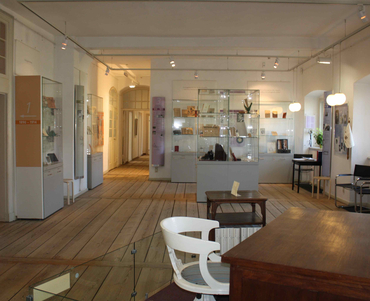History
- 27 April 1991 Opening of the Memorial in Rheinsberg Castle
- 30 October 1993 First permanent exhibition on the life and work of Kurt Tucholsky
- 30 January 2004 New permanent exhibition. The memorial is renamed the Kurt Tucholsky Literature Museum
- 14 June 2009 Re-opening of the Alfred Wegener Museum
- 29 June 2011 Founding of a support foundation
- 24 August 2012 Opening of the Carriage house
- 1 March 2015 New Archive
- 2020 Website relaunch and museum app with online tour





